Thailand protests: Yingluck government rejects election delay
- Published
The BBC's Jonathan Head says these protesters are a hardcore group determined to use everything they can to stop the election
Thailand's government has rejected calls to delay February's election, amid increasingly violent protests in which a policeman has been shot dead.
The Electoral Commission urged the postponement over safety fears for candidates on the campaign trail.
But government officials said parliament was already dissolved so there was no legal reason for a delay.
The protesters want the government to stand down and be replaced by an unelected "people's council".
Violent scenes
In a televised address, Deputy Prime Minister Phongthep Thepkanjana rejected the electoral commission's request.
"The Election Commission said holding elections will bring violence but the government believes delaying an election will cause more violence," he said.
Prime Minister Yingluck Shinawatra called the snap election, scheduled for 2 February, after weeks of protests.
The demonstrators dismissed the election, and the official opposition has refused to field candidates.
Protesters have further rejected another offer by Ms Yingluck to form a national reform council intended to run alongside her government.
Thursday has seen some of the most violent scenes since the latest wave of protests began.
A hardcore group, some throwing stones and evidently some who were armed, tried to break into the stadium where the electoral commission was registering candidates.
But police responded with tear gas, dispersing the crowd.
One police officer was shot dead, a nurse suffered gunshot wounds, and dozens of police and protesters were injured, some seriously.
Ms Yingluck's Pheu Thai Party won the last election in 2011 and has a big majority in parliament.
However, protesters say her brother, former leader Thaksin Shinawatra, controls the government from self-imposed exile.
He was overthrown in a military coup in 2006 and fled before being convicted of corruption.
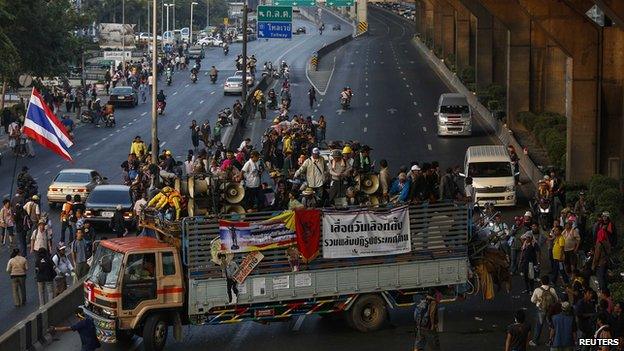
Unrest has been mounting in Thailand over the past few weeks and snap elections have been called; here anti-government protesters block Vibhavadi Rangsit Road
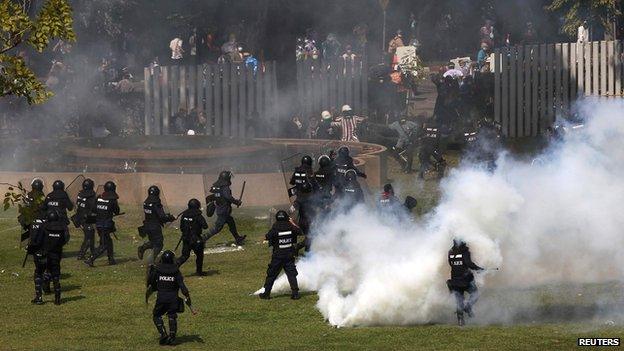
A policeman was killed in clashes with anti-government demonstrators outside a stadium where candidates were gathering to register for the general election
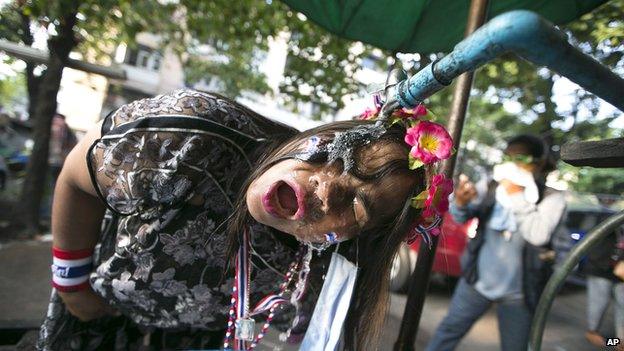
An anti-government protester washes tear gas from her face
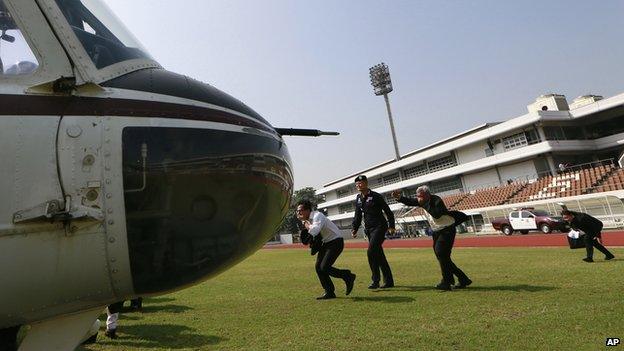
Election commission officials are escorted by a policeman to a helicopter during an evacuation after the election registration process was disrupted by anti-government protesters
The latest crisis was sparked after the government attempted to pass an amnesty law that would have allowed Thaksin to return to Thailand.
He is still hugely popular in rural areas and in the north, and parties linked to him have won convincing majorities in every election they have contested since 2001.
But many city-dwellers bitterly oppose Thaksin and have several times paralysed governments allied to him by launching massive demonstrations.
- Published26 December 2013
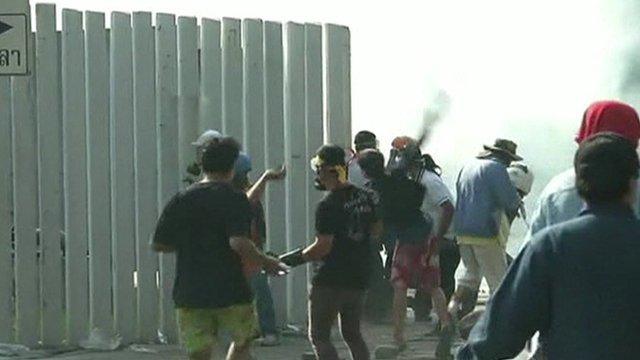
- Published22 May 2014
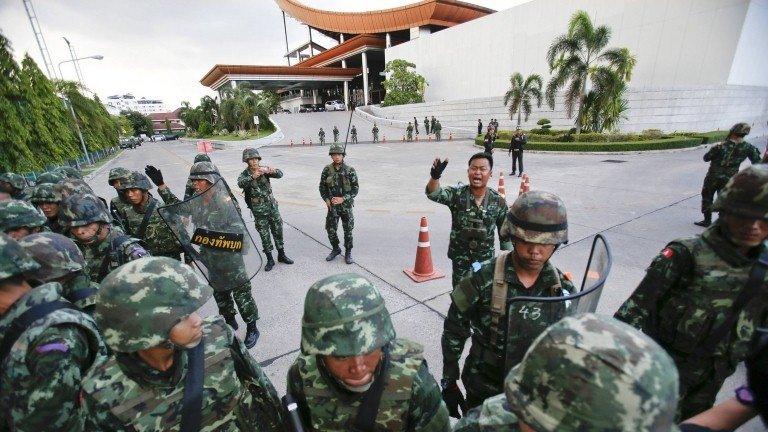
- Published19 December 2013
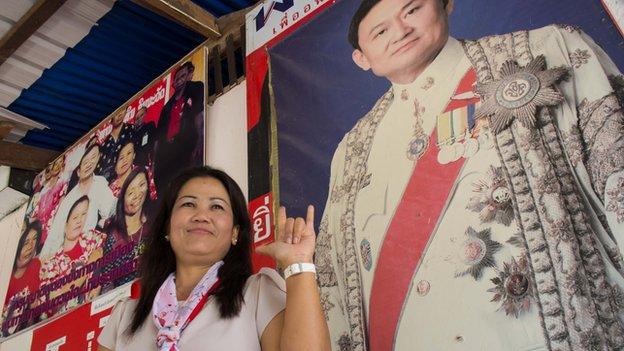
- Published22 December 2013
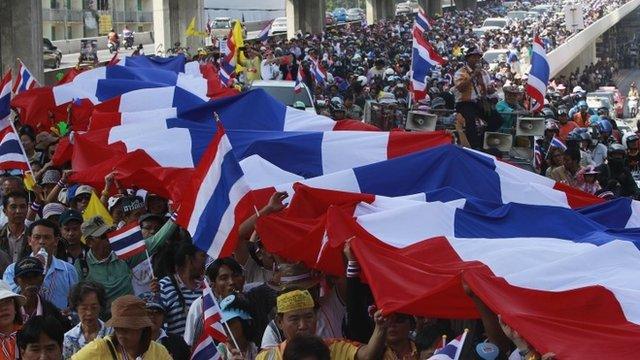
- Published13 July 2012